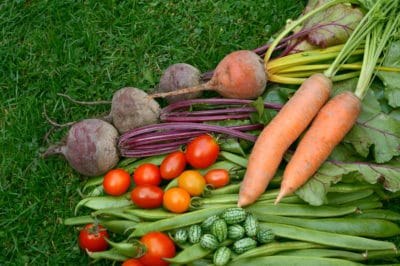Your Carrots Need Some Friends
Carrots are a fantastic addition to your vegetable garden, and they grow well in many places. In general, these root vegetables are also pretty resistant to disease and insects, but can still benefit from mutually beneficial companion plantings.
In addition to helping deter bugs and preventing disease, compatible plantings can help your carrots by putting certain nutrients into the soil, attracting pollinators, suppressing weeds, and even enhancing flavor.
The Best Friends for Your Carrots
Some plants are better suited to living with carrots in your garden. For example, radishes are a great companion plant. Planted at the same time, radishes germinate sooner, which loosens the soil, making it easier for your carrots to grow.
Other plants that are good companion plants include tomatoes, which provide shade and put out a chemical, solanine, which kills insects. Leeks, onions, rosemary, and sage all have scents that drive away carrot flies. And chives not only help with carrot flies, they actually improve the carrot’s flavor.
Here are a few more good companions for your carrots:
- Lettuce
- Cabbage
- Amaranth
- Marigold
- Parsley
- Nasturtium
Bear in mind that protective plants, like marigold, parsley, and nasturtium, need to be mature before you plant your carrots; this means that planting them a year or more before you put your carrots in the ground is a good idea. Of course, if that’s not practical, consider planting your carrots near existing stands of these plants.
Your Carrots Have Enemies, Too
Dill and coriander give off a substance from their roots that harms carrots. Don’t plant these with your carrots.
Parsnips are susceptible to the same pests and diseases as carrots, so it’s best to plant these apart from one another to prevent shared problems.
One Way Relationships
Some plants can be planted near carrots and will benefit, although they offer no return to your carrots. Carrots assist beans in their growth, however, the benefit of beans is in nitrogen, which carrots don’t really need. Still, the growth of the beans being a positive of this relationship makes co-planting worthwhile.
Companion plantings have long been accepted as a natural, effective way to protect your plants and keep your garden healthy and productive. Your food plants, including carrots, will benefit greatly from the right companions; co-plantings can make a huge difference in many ways, and can save you time and work on your way to an abundant, tasty harvest.
